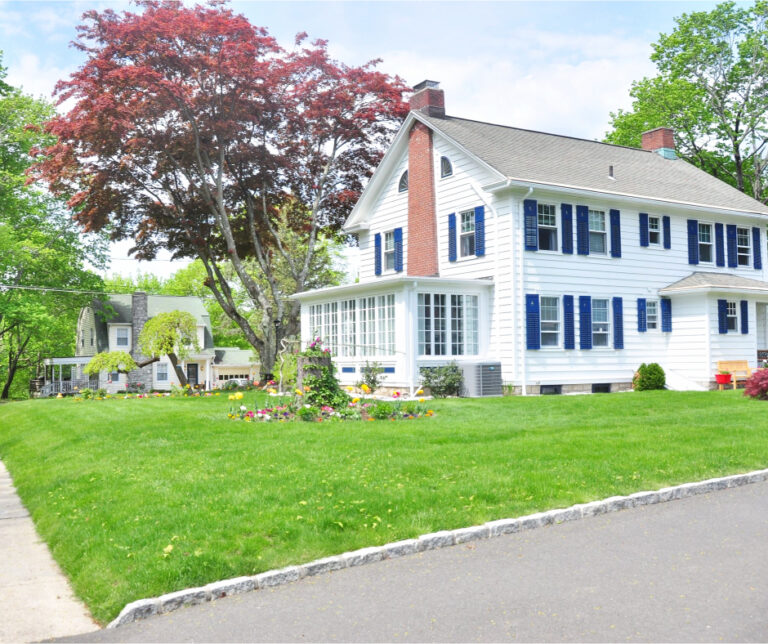Alec Finn of American Heritage Lending, a preferred wholesale mortgage lender of non-QM loans at GCA Mortgage Group, a dba of Gustan Cho Associates, wrote this guide about the differences between mortgage brokers versus lenders..
Alec Finn will be covering the benefits of using mortgage brokers versus lenders when it comes to getting preferred mortgage rates and having a wide variety of mortgage loan options on non-conforming and non-traditional loan programs on primary, second, and investment properties.
Consumers often think of dealing with mortgage bankers, and so-called direct mortgage lenders offer more benefits with chances of getting a mortgage approval. Other consumers assume that getting the best rates is given by direct mortgage bankers, not mortgage brokers. In the following paragraphs, we will cover the benefits and differences between mortgage brokers versus lenders.
Who Offers Lowest Rates Between Mortgage Brokers Versus Lenders
There is nothing free in the mortgage industry. Many borrowers with higher credit scores will shop at various mortgage bankers for the best-preferred mortgage rates.
An eighth of a percentage point means tens of thousands of dollars over a 30-year mortgage loan term. There can be one full percentage point between lender to lender. It is wise to shop for rates no matter how low or high your credit scores are.
So do all lenders have similar mortgage rates? Can one borrower get the same rate and terms from one lender over another? The answer is NO. Not all lenders have the same rates on borrowers with a certain credit score, loan-to-value, debt-to-income ratio, loan size, type of property, and loan program.
What Determines Rates For Mortgage Brokers Versus Lenders
The maximum mortgage brokers can get compensated for their services is no higher than a 2.75% yield spread premium. The yield spread premium of mortgage brokers must be disclosed on the closing disclosure.
There is no cap on how much mortgage bankers can make. Most mortgage bankers will make over 5% yield spread premium, almost double that of mortgage brokers.
Mortgage bankers do not have to disclose their yield-spread premium on the closing disclosure. The right-hand rule is the higher the compensation a lender makes, the higher the mortgage rates to consumers. Therefore, mortgage brokers have lower mortgage rates versus lenders.
GCA Mortgage Group, empowered by NEXA Mortgage, LLC, has a national reputation for being able to do mortgage loans other lenders cannot do at the lowest rates. Over 80% of our clients at GCA Mortgage Group are borrowers who could not qualify at other mortgage companies.
How can GCA Mortgage Group be able to do mortgage loans others cannot do? GCA Mortgage Group has the states (licensed in 48 states), the mortgage loan products (210 wholesale mortgage lenders), and the lowest rates (able to offer the lowest rates due to being a mortgage broker). American Heritage Lending is among GCA Mortgage Group’s top preferred wholesale lenders of non-QM loans. GCA Mortgage Group are mortgage brokers licensed in 48 states, including Washington, DC, Puerto Rico, and the U.S. Virgin Islands.
What Are The Differences Between Mortgage Brokers Versus Lenders
Alec Finn will thoroughly explain the difference between using mortgage brokers versus lenders. Many homebuyers who purchase rent-to-own homes cannot qualify for a traditional loan with a mortgage banker but can probably qualify for a non-QM loan with mortgage brokers.
Lenders are also called mortgage bankers, correspondent lenders, and mini correspondent lenders. Mortgage lenders normally have substantially higher rates than mortgage brokers. The higher compensation a mortgage company makes, the higher rate to the consumer.
When obtaining a loan, borrowers have two primary options: going directly to a mortgage banker or using a broker. While going directly to a lender may seem simpler, using a broker to obtain a loan can have many benefits. This article will discuss the benefits of brokered loans for both loan officers and borrowers.
Mortgage Brokers Versus Mortgage Bankers For Loan Officers
Increased Exposure: By working with brokers, loan officers can tap into a wider pool of potential borrowers than they would have access to. Brokers often have established relationships with various borrowers, which can help loan officers expand their client base and grow their business. Alec Finn of American Heritage Lending said the following about the benefits for loan officers working for mortgage brokers versus mortgage bankers.
Reduced Marketing Costs is another benefit for working at mortgage brokers versus mortgage bankers for loan officers. Brokers often have their marketing strategies in place. By having marketing strategies in place means loan officers don’t have to spend as much time or money on marketing their services. This can be especially helpful for loan officers who are just starting or don’t have a large marketing budget.
Improved Efficiency: Brokers can help loan officers streamline their loan processing by taking on paperwork, pre-qualification, and initial screening. This can free up time for loan officers to focus on other business areas.
Mortgage Brokers Versus Mortgage Bankers For Borrowers
Access to More Options: Brokers have access to a wide range of lenders and loan products, which means borrowers have access to more options than they would if they were working directly with a single lender. This can increase the chances of finding a loan that fits their unique needs and circumstances. Alec Finn also adds the following statement:
Consumers get expert guidance by mortgage brokers versus mortgage bankers. Brokers are often experts in the loan industry and can guide and advise borrowers on various loan products and lenders. This can help borrowers make more informed decisions and avoid making costly mistakes.
Time Savings: Brokers can help borrowers save time by handling much of the legwork in obtaining a loan. This includes tasks such as filling out applications, gathering documentation, and communicating with lenders. By working with a broker, borrowers can focus on other important areas of their life.
Do All Mortgage Brokers Have The Same Preferred Mortgage Rates?
While going directly to a lender may seem simpler, using a broker to obtain a loan can benefit both loan officers and borrowers.
Gustan Cho Associates has a hybrid lending platform with 210 wholesale mortgage investors. We have multiple different lending divisions. We are primary mortgage brokers but have the ability to bank government and conventional loans through our dba AXEN Mortgage, LLC. We have a dba Preferred Mortgage Rates, our discount mortgage division and Jumbo Mortgage Options, where we offer discount rates on Jumbo Mortgages.
Loan officers can grow their business and better serve their clients by tapping into a wider pool of potential borrowers, reducing marketing costs, and improving efficiency. And by accessing more options, receiving expert guidance, and saving time, borrowers can find a loan that fits their unique needs and circumstances.







